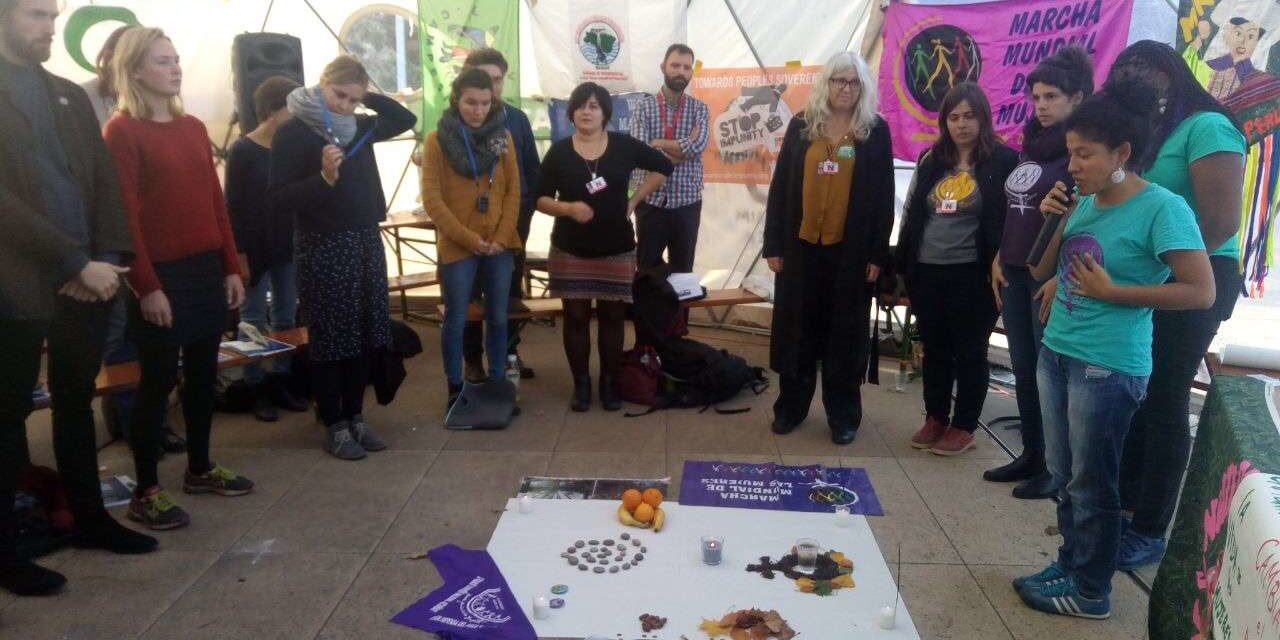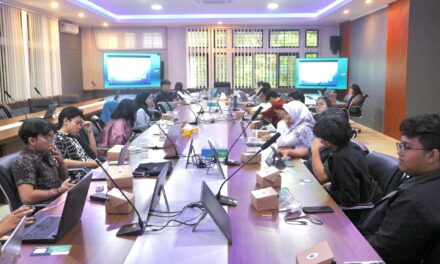Hundreds of representatives of social movements from across the world converged in Geneva to challenge corporate power and reclaim people’s sovereignty. Dubbed as the “People’s Week of Mobilizations, the Global Campaign to Dismantle Corporate Power, Reclaim People’s Sovereignty and Stop Corporate Impunity,” these groups organized a series of workshops, side events, and interventions inside and outside the United Nations, October 21-27. A key campaign was the collective push for a legally binding treaty that will compel transnational corporations (TNCs) and other business enterprises to respect human rights and nature, exact accountability from corporations, and sanction them for corporate crimes and other human rights violations. If adopted, this treaty will be a strong departure from the existing national and international human rights treaties and resolutions that only allow voluntary compliance by TNCs and rely on corporate social responsibility.
Coming from Asia, North and South America, and Europe, various grassroots communities, activists, campaigners, women, farmers, indigenous peoples, and workers shared common stories of horrors, tragedies, exploitations, resulting from corporate actions and their impunity allowing them to get away with these. Aurelia Martina Arzu Rochez from Honduras recounted their struggles to defend their lands and territories from extractives and mining companies. Aurelia belongs to the black indigenous communities of Carifura that have suffered historical injustices and racism from the Honduran government.
“I will never stop protecting our rivers, lands, and human rights for our children. Victims will never stop fighting for their common wealth,” Aurelia said.
From across the Pacific, Kholiso Alin of WALHI Indonesia lamented how oil palm companies have encroached on indigenous peoples’ lands and have exploited farm workers through dire labor conditions, depressed wages, and back-breaking work. In South Korea, Hyungdae Park, a farmer from the Korean Peasant League and member of the international peasant movement La Via Campesina, narrated the unjust free trade policy that forces the South Korean government to buy 10 percent of imported rice from the US and EU despite the capacity of small farmers to produce and provide rice for the entire population.
“We are more than capable of achieving rice self-sufficiency. Rice is a political crop for us. With free trade agreements and the World Trade Organization, small farmers are forced into indebtedness and many of them have committed suicide in the process,” Park explained.
These stories and many more speak about the architecture of corporate impunity and the overwhelming power of TNCs in defining and dictating the development paths of countries in the global North and the global South at the expense of peoples’ and local communities’ rights, livelihoods, self-determination, and well-being. The common narrative is that international and national laws and policies have failed to bring corporations that violate human rights to justice and, as such, have also denied victims their access to justice and redress. Various institutional and policy processes and mechanisms such as privatization, free trade and investment agreements, and IFI financing of destructive and extractivist projects have fostered corporate culture of impunity and immunity.
But affected communities, victims and social movements are also rising up, mobilizing, and empowering themselves against corporate power.
Grassroots women in the frontlines
“TNCs arrived in Mozambique and started grabbing our lands. There was a project which bids to occupy 14 million hectares of land. This is under the pretext of carrying out a development project. TNCs are extracting minerals and resources we don’t need.” said Suzete Marques, a feminist and grassroots activist from the international feminist movement, World March of Women. Suzete was among more than 50 women and men activists who gathered in a workshop on women’s struggles organized by the World March and other feminist organizations.
Women, particularly rural, black, and indigenous, are mostly affected by extractivist projects and experience a range of gender-based violence, rape, trafficking, prostitution, and harassments from mining companies and security forces. Similarly, women workers in garment factories in the global South that produce for global brands such as H&M, GAP, etc. struggle to ensure fair wages.
“Women in Cambodia are not paid well, they are not able to socialize and participate in decision making, also suffer depressed wages, Women workers in the garment factories fight for fair wages and living conditions. In the rural areas, land grabbing by Asian and western corporations violate women’s rights to land and the commons. They are forcefully evicted from their lands, migrate to the urban center and work in factories. The cycle of exploitation never ends” said Ros Sokunthy of Focus on the Global South.
Meanwhile, according to Marianna Fernandes of World March of Women-Brazil, “what’s worse is that these brands sell shirts saying feminism, while they employ women in bad working conditions and violate their rights in the global South. We denounce this corporate capture of feminism by global brands like H&M.”
In Latin America, there are on-going processes of empowerment through political education and art. In Brazil, for example, about 7,000-8,000 women have participated in gatherings, mobilizations in the streets, and movement building (when). “TNCs are now scared of our women who are fighting against them,” said Tchenna Fernandes Maso of La Via Campesina.
In another part of the globe, South African movements have embarked on a Permanent People’s Tribunal, which is a convergence space for struggles across the country. It has been an importance space for making visible women’s voices, struggles, and experiences, and “a powerful space of claiming justice from below.” In Asia (?), Palestinian organizations have come together to collectively fight corporations legitimizing Israel’s illegal occupation of Palestine, thereby perpetrating women’s oppression.
“There are many Israeli companies, some US and EU companies that are violating Palestinian rights, we need to hold them accountable, denounce them, and take them to court,” expressed by Maren Mantovani of Stop the Wall Campaign.
There have also been initiatives toward food sovereignty as an alternative practice and paradigm to corporate-led development.
According to Karin Nansen of Friend of the Earth-Uruguay, “food sovereignty of women is about our struggle to control over seeds and food production. Seeds are threatened by privatization. We defend our seeds as a strategy of resistance. We build new relations between the working class and the peasantry based on the fight for sovereignty. TNCs are taking over our food systems and denying our fundamental rights to health and food. Food sovereignty is therefore about defending democracy against neoliberalism and this requires popular feminism. The system cannot change without dismantling patriarchy. This is a basic requirement for the system to change.”
* Mary Ann Manahan is a Filipina feminist activist, researcher and campaigner with Focus on the Global South and a member of the World March of Women-Philippines.









